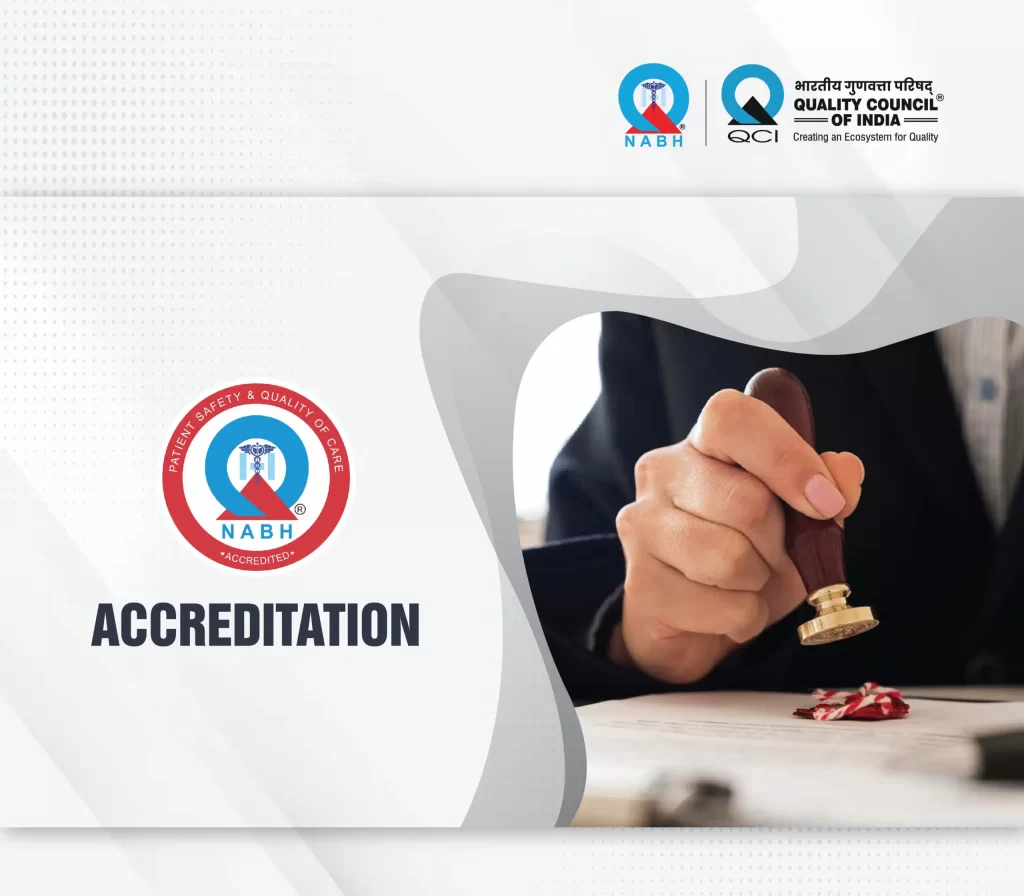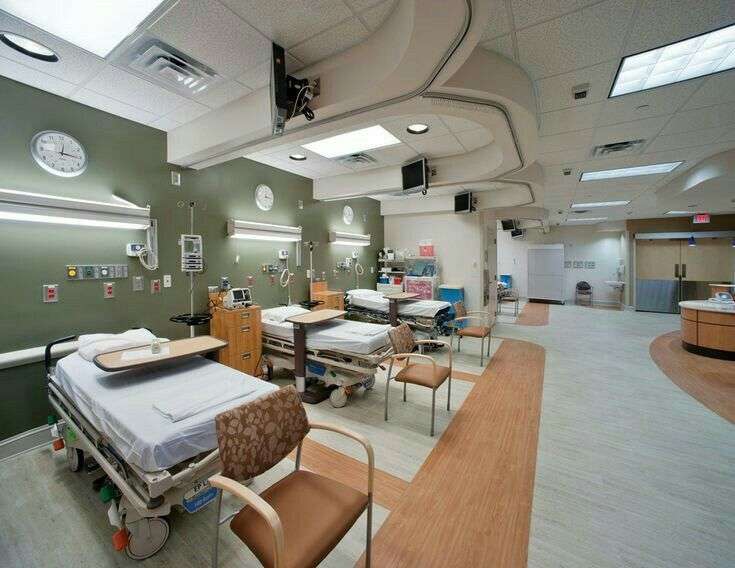
The Impact of Natural Light in Modern Hospital Design
June 10, 2024
Planning Your Ayurvedic Hospital: Key Steps to Begin
June 15, 2024In today’s dynamic healthcare landscape, ensuring patient safety and delivering quality care stand as imperatives. The National Accreditation Board for Hospitals & Healthcare Providers (NABH) emerges as a frontrunner in guaranteeing these benchmarks within India. NABH accreditation serves as a prestigious symbol of excellence, signifying a hospital’s steadfast commitment to upholding the highest standards in patient care and safety. This comprehensive guide is crafted to delve into the intricacies of NABH accreditation, empowering healthcare providers and patients alike.
Understanding NABH Accreditation: A Commitment to Excellence
Established as a constituent board of the Quality Council of India (QCI), NABH plays a pivotal role in establishing and administering accreditation programs for healthcare organizations. This accreditation process verifies a hospital’s adherence to meticulously crafted standards encompassing every facet of patient care, from initial admission to discharge and everything in between.

The Compelling Advantages of NABH Accreditation
Hospitals that achieve NABH accreditation reap a multitude of benefits:
Prioritizing Patient Safety and Quality Care: Accreditation guarantees that healthcare providers adhere to standardized protocols, minimizing errors and prioritizing patient safety.
Building Trust and Credibility: Accredited hospitals garner the trust of patients, insurance companies, and other stakeholders, solidifying their reputation and credibility.
A Culture of Continuous Improvement: The accreditation process fosters a culture of continuous improvement, encouraging hospitals to consistently refine and elevate their services.
Demystifying NABH Standards and Guidelines
NABH standards are comprehensive, encompassing various aspects of hospital administration and patient care. Here’s a spotlight on some of the most crucial areas:
- Access, Assessment, and Continuity of Care (AAC): Ensures patients’ access to appropriate care, along with prompt and effective assessment. This includes guidelines for admission, discharge, transfer, and referral processes.
- Care of Patients (COP): Focuses on delivering safe, high-quality care to all patients. Covers emergency services, intensive care, anesthesia, and surgical services.
- Management of Medication (MOM): Provides guidelines for safe prescribing, storing, dispensing, and administering medications. Emphasizes the significance of medication reconciliation and patient education.
- Patient Rights and Education (PRE): Ensures patients are informed about their rights and responsibilities. Includes guidelines on informed consent, patient education, and confidentiality.
- Hospital Infection Control (HIC): Establishes standards to prevent and control infections within the hospital setting. Includes protocols for sterilization, disinfection, and management of infectious diseases.
- Patient Safety and Quality Improvement (PSQI): Encourages continuous monitoring and improvement of patient safety and quality of care. Covers incident reporting, root cause analysis, and implementation of corrective actions.
- Responsibilities of Management (ROM): Focuses on the leadership and governance of the hospital. Includes strategic planning, financial management, and human resource management.
- Facility Management and Safety (FMS): Ensures a safe hospital environment for patients, staff, and visitors. Covers maintenance of infrastructure, biomedical equipment, and emergency preparedness.
- Human Resource Management (HRM): Provides guidelines for recruiting, training, and managing hospital staff. Emphasizes the importance of staff competencies and continuous professional development.
- Information Management System (IMS): Establishes standards for managing patient information and hospital data. Includes guidelines on electronic health records, data privacy, and security.
Navigating the Accreditation Journey
The NABH accreditation process follows a well-defined structure:
- Application Submission: Hospitals initiate the process by submitting an application along with a self-assessment toolkit to NABH.
- Pre-assessment: A preliminary evaluation is conducted to identify areas for improvement and potential gaps.
- Final Assessment: NABH assessors conduct a thorough on-site evaluation to verify compliance with the established standards.
- Accreditation Decision: Based on the assessment report, NABH grants accreditation if the hospital meets the required standards.
- Continuous Monitoring: Accredited hospitals undergo periodic surveillance audits to ensure ongoing adherence to NABH standards.

The Rewards of NABH Accreditation
Hospitals that achieve NABH accreditation unlock a treasure trove of benefits:
- Enhanced Patient Confidence: Patients are more likely to place their trust in and seek services from accredited hospitals.
- Operational Efficiency: Streamlined processes and standardized protocols lead to improved efficiency and reduced operational costs.
- Regulatory Compliance: Accreditation assists hospitals in staying compliant with national and international healthcare regulations.
- Market Competitiveness: Accreditation sets hospitals apart from their competitors, positioning them as preferred choices for patients and healthcare professionals.
Conclusion: A Commitment to Excellence
Hospertz Healthcare Consultancy is dedicated to helping hospitals achieve NABH accreditation, signaling their unwavering commitment to high-quality and safe healthcare services. By partnering with us and adhering to NABH standards, hospitals elevate healthcare standards across India, ensuring a brighter, healthier future for all.



